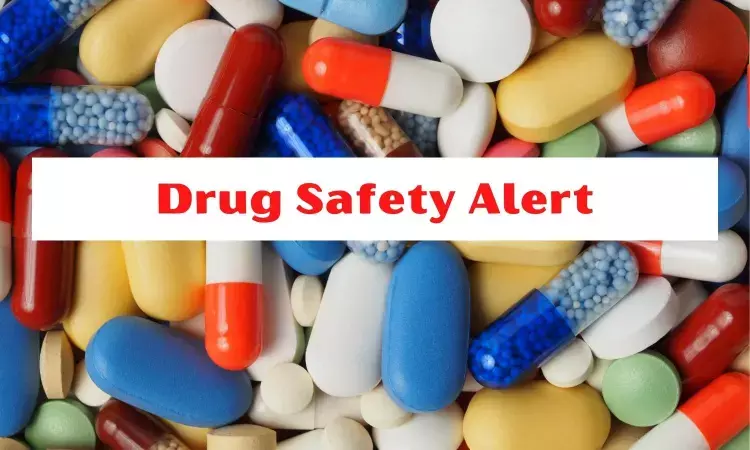- Home
- Medical news & Guidelines
- Anesthesiology
- Cardiology and CTVS
- Critical Care
- Dentistry
- Dermatology
- Diabetes and Endocrinology
- ENT
- Gastroenterology
- Medicine
- Nephrology
- Neurology
- Obstretics-Gynaecology
- Oncology
- Ophthalmology
- Orthopaedics
- Pediatrics-Neonatology
- Psychiatry
- Pulmonology
- Radiology
- Surgery
- Urology
- Laboratory Medicine
- Diet
- Nursing
- Paramedical
- Physiotherapy
- Health news
- Fact Check
- Bone Health Fact Check
- Brain Health Fact Check
- Cancer Related Fact Check
- Child Care Fact Check
- Dental and oral health fact check
- Diabetes and metabolic health fact check
- Diet and Nutrition Fact Check
- Eye and ENT Care Fact Check
- Fitness fact check
- Gut health fact check
- Heart health fact check
- Kidney health fact check
- Medical education fact check
- Men's health fact check
- Respiratory fact check
- Skin and hair care fact check
- Vaccine and Immunization fact check
- Women's health fact check
- AYUSH
- State News
- Andaman and Nicobar Islands
- Andhra Pradesh
- Arunachal Pradesh
- Assam
- Bihar
- Chandigarh
- Chattisgarh
- Dadra and Nagar Haveli
- Daman and Diu
- Delhi
- Goa
- Gujarat
- Haryana
- Himachal Pradesh
- Jammu & Kashmir
- Jharkhand
- Karnataka
- Kerala
- Ladakh
- Lakshadweep
- Madhya Pradesh
- Maharashtra
- Manipur
- Meghalaya
- Mizoram
- Nagaland
- Odisha
- Puducherry
- Punjab
- Rajasthan
- Sikkim
- Tamil Nadu
- Telangana
- Tripura
- Uttar Pradesh
- Uttrakhand
- West Bengal
- Medical Education
- Industry
Drug Safety Alert: Indian Pharmacopoeia Commission flags adverse reactions linked to co-trimoxazole

New Delhi: The Indian Pharmacopoeia Commission (IPC), through its recently issued drug safety alert for the month of October, has revealed that Co-trimoxazole which is indicated to treat certain bacterial infections, is linked with adverse drug reactions (ADRs) named Fixed Drug Eruption.
In connection to the above, the Indian Pharmacopoeia Commission (IPC) has cautioned healthcare professionals to diligently monitor the potential occurrence of Adverse Drug Reactions (ADRs) when administering Co-trimoxazole.
This came after a preliminary analysis of Adverse Drug Reactions (ADRs) from the Pharmacovigilance Programme of India (PvPI) database.
Co-trimoxazole is a combination of trimethoprim and sulfamethoxazole and is in a class of medications called sulfonamides. It works by stopping the growth of bacteria.
Trimethoprim is a reversible inhibitor of dihydrofolate reductase, one of the principal enzymes catalyzing the formation of tetrahydrofolic acid (THF) from dihydrofolic acid (DHF). Tetrahydrofolic acid is necessary for the biosynthesis of bacterial nucleic acids and proteins and ultimately for continued bacterial survival - inhibiting its synthesis, then, results in bactericidal activity.
Sulfamethoxazole is a sulfonamide that inhibits bacterial dihydrofolic acid synthesis due to its structural similarity to an endogenous substrate, para-aminobenzoic acid (PABA).
Sulfamethoxazole is generally given in combination with trimethoprim, which inhibits a sequential step in bacterial folic acid synthesis - these agents work synergistically to block two consecutive steps in the biosynthesis of nucleic acids and proteins which are necessary for bacterial growth and division, and using them in conjunction helps to slow the development of bacterial resistance.
The alert noted that Co-trimoxazole, a combination of trimethoprim and sulfamethoxazole, is indicated in the treatment of respiratory tract infections, urogenital infections, gastrointestinal (G.I.) tract infections etc.
Cotrimoxazole is available in the Indian market under different brand names, such as Piramal Healthcare's Bactrim Ds Tablet and Bactrim Suspension, GSK's Septran P-Suspension, and Intas Pharmaceutical's Intrim tablet, among others.
However, following the preliminary analysis of Adverse Drug Reactions (ADRs) from the PvPI database, it is reported that Co-trimoxazole can lead to Fixed Drug Eruption.
Fixed drug eruptions (FDEs) are dermatological manifestations of drug reactions that often occur in the same location upon re-exposure to a drug. They usually appear as erythematous-violaceous, circular patches.
There are over 100 drugs associated with FDEs, but some of the most commonly implicated drugs include trimethoprim-sulfamethoxazole (and other sulfonamides), naproxen, ibuprofen, tetracyclines, other antibiotics (ampicillin, metronidazole), and barbiturates.
Now, as per the issued drug safety alert, the following suspected drug is associated with the ADR as given below:
S. No. | Suspected Drug | Indications | Adverse Drug Reaction |
1 | Co-trimoxazole |
| Fixed Drug Eruption (FDE) |
In light of the above, the Indian Pharmacopoeia Commission, Ministry of Health & Family Welfare, has advised Healthcare Professionals, Patients/Consumers to closely monitor the possibility of the above ADRs associated with the use of the above-suspected drugs.
Further, the safety alert added, "If such reaction is encountered, please report to the NCC-PvPI, IPC by filling out Suspected Adverse Drug Reactions Reporting Form/Medicines Side Effect Reporting Form for Consumer (http://www.ipc.gov.in), through Android Mobile App "ADR PvPI App" and PvPIHelpline No. 1800-180-3024 (Toll-Free)."
Mpharm (Pharmacology)
Susmita Roy, B pharm, M pharm Pharmacology, graduated from Gurunanak Institute of Pharmaceutical Science and Technology with a bachelor's degree in Pharmacy. She is currently working as an assistant professor at Haldia Institute of Pharmacy in West Bengal. She has been part of Medical Dialogues since March 2021.
Dr Kamal Kant Kohli-MBBS, DTCD- a chest specialist with more than 30 years of practice and a flair for writing clinical articles, Dr Kamal Kant Kohli joined Medical Dialogues as a Chief Editor of Medical News. Besides writing articles, as an editor, he proofreads and verifies all the medical content published on Medical Dialogues including those coming from journals, studies,medical conferences,guidelines etc. Email: drkohli@medicaldialogues.in. Contact no. 011-43720751


